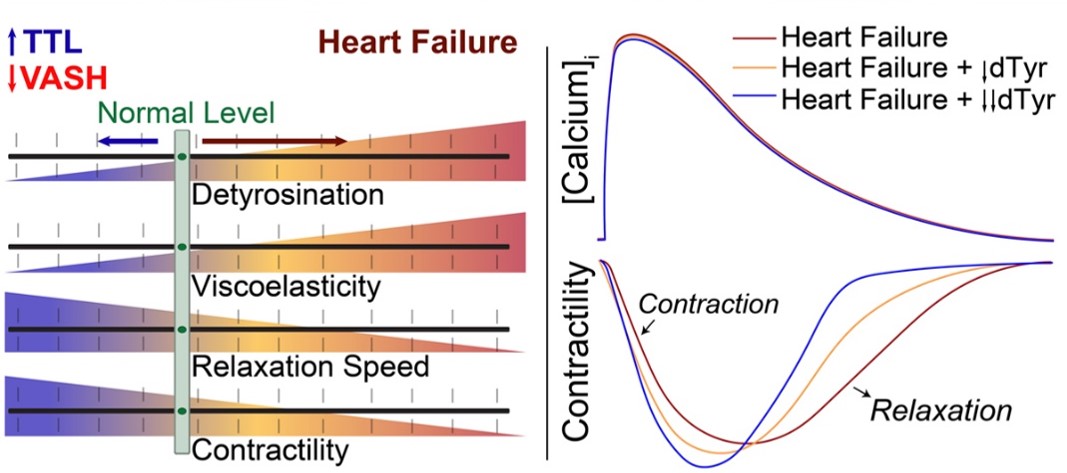Non-replicating viral delivery of shVASH1 to treat heart failure.
Problem:
Heart failure (HF) is condition in which the heart cannot pump enough blood throughout the body to meet its need. Approximately 6 million American adults live with the condition, and close to 400,000 people die from it annually. Mainstay treatment for HF are lifestyle changes and medications that include ACE inhibitors, beta blockers, diuretics, and sodium-glucose cotransporter-2 inhibitors. Despite several treatment options, the 5-year mortality rate remains high at approximately 75%.
Solution:
One hallmark of HF is increased stiffness of cardiomyocytes (CM), which is due to the detyrosination of cardiac microtubules. Vasohibin-1 (VASH1) is an enzyme that detyrosinates cardiac microtubules. The inventors discovered that VASH1 depletion was sufficient to reduce microtubule detyrosination and restore CM function.
Technology:
The inventors demonstrated that VASH1 protein could be depleted using short-hair RNA molecules in human CMs. Moreover, they showed that depletion of VASH1 resulted in significant reduction in detyrosinated tubulin expression. VASH1 knockdown was associated with increased contraction speed and relaxation in CMs isolated from patients with failing hearts. Finally, the inventors demonstrated that VASH1 knockdown reduced CM stiffness.
Advantages:
- VASH1 depletion has minor effects on non-failing CMs.
- Potential for lower off-target effects (compared to the detyrosinating enzyme inhibitor parthenolide).

Graphical representation of the relationship between microtubule detyrosination and cardiomyocyte function (TTL: Tubulin Tyrosine Ligase – enzyme that tyrosinates microtubules)
Stage of Development:
- In vitro proof of concept in CMs isolated from patients with HF
Case ID:
20-9311-TpNCS
Web Published:
10/2/2023
Patent Information:
| App Type |
Country |
Serial No. |
Patent No. |
File Date |
Issued Date |
Expire Date |